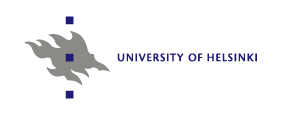- FIN-CLARIAH Research Infrastructure
A new national research infrastructure initiative FIN-CLARIAH for...
8.12.2021 8:12 by eahyvone - WarMemoirSampo published on December 3, 2021
A new “Sampo” application, “WarMemoirSampo”...
8.12.2021 8:04 by eahyvone - Five new SeCo papers accepted for the ISWC 2021
The 20th International Semantic Web Conference (ISWC 2021), the...
2.8.2021 6:53 by eahyvone
- Eero Hyvönen, Patrik Boman, Heikki Rantala, Annastiiina Ahola and Petri Leskinen: ConfermentSampo - A Knowledge Graph, Data Service, and Semantic Portal for Intangible Academic Cultural Heritage 1643-2023 in Finland
- Rafael Leal, Annastiina Ahola and Eero Hyvönen: Enriching Cultural Heritage Knowledge Graph Metadata from Finnish Texts with Large Language Models
- Michael Lewis, Eljas Oksanen, Frida Ehrnsten, Heikki Rantala, Jouni Tuominen and Eero Hyvönen: The Impact of Human Decision-making on the Research Value of Archaeological Data
- Eero Hyvönen, Petri Leskinen, Henna Poikkimäki, Heikki Rantala, Annastiina Ahola, Refael Leal, Jouni Tuominen, Senka Drobac, Ossi Koho, Ilona Pikkanen and Hanna-Leena Paloposki: LetterSampo Finland knowledge graph, data service, and semantic portal for researching epistolary data of the Grand Duchy of Finland (1809-1917)
Guest Lecture
Aalto University, Otaniementie 17, TUAS Building, Hall AS1
August 30th, 2011, 14:15-15:00
Enabling Humanist Inferencing:
on the Heuristic Potential of the Europeana Data Model
Prof. Dr. Stefan Gradmann, Humboldt University, Berlin
Abstract
on the Heuristic Potential of the Europeana Data Model
The talk will introduce the RDF graph based Europeana Data Model and briefly situate it in the Linked Open Data landscape. However, I will make clear as well that doing linked open data is not an end in itself but that that efforts should be geared to the needs of specific user groups - one of the most prominent ones being Digital Humanities scholars. A Linked Open Europeana would provide them with new heuristics for both aggregation and interpretation of digital scholarly sources and enable large scale 'semantic' operations over vast amounts of cultural resources: "Humanities Big Data" so to speak. The DM2E (Digitised Manuscripts to Europeana) project currently under negociation with the Commission builds on work in "Discovery" and intends to address this aspect of Linked Open Data use.
Short Bio
Dr. Stefan Gradmann is a full Professor teaching knowledge management and semantic knowledge architectures at the School of Library and Information Science of Humboldt-Universität zu Berlin since 2008. Other focal areas in teaching and research are digital libraries, library automation as well as the use of information technology in the realm of sense and interpretation in the 'Digital Humanities'. He studied Ancient Greek, Philosophy and German Literature in Paris and Freiburg (Brsg.), where he took his PhD in German Literature in 1986. Afterwards, he was active as scientific librarian and directing the GBV network before working as a product manager from 1996 to 2000 for Pica B.V. in Leiden (NL) and Montpellier (F). From 2000 until 2007 he was deputy director of Hamburg University's computing centre. He has been heavily involved in the creation of Europeana from its beginnings, where he is responsible for semantic interoperability. He has been active since 1995 as an expert for the European Commission (DG INFSO and Research) and various national funding bodies (mostly DFG and ANR). Since 2008, Stefan Gradmann is president of the German Society of Information Science and Information Practice (DGI). His working languages are German, English, French and Dutch.


